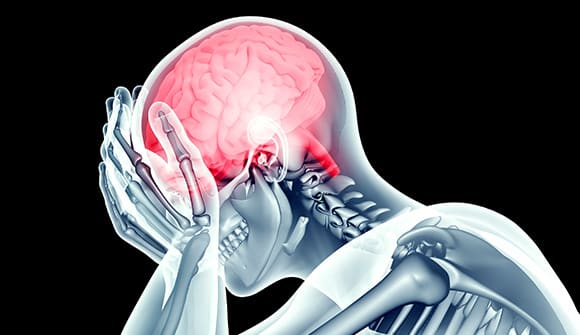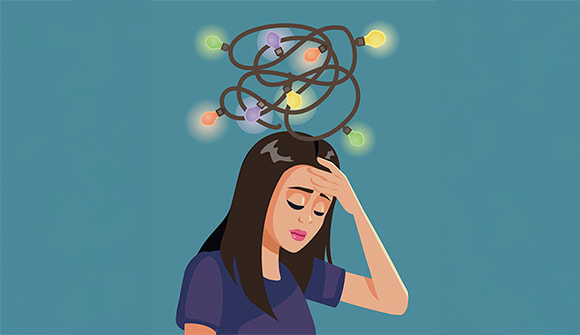Strong ties to stroke
The lesser-known link between the brain condition and depression.
Article Date:

In the midst of the COVID-19 pandemic, depression, anxiety and stress levels seem to be at an all-time high. Medical professionals anticipate a variety of issues coming to the forefront because of the mental health struggles endured by so many in 2020 and into 2021. These psychological struggles can also affect physical health, putting people at higher risk of potentially life-threatening diseases such as stroke.
Stroke is the fifth leading cause of death in the United States and a major cause of serious disability, according to the U.S. Centers for Disease Control and Prevention (CDC). The condition occurs when there is a sudden interruption of blood supply to the brain, which damages brain tissue and causes brain cells to die.
While there are a number of well-known risk factors, medical experts are just beginning to understand the nontraditional risks of stroke. A study from the University of Alabama at Birmingham found the more symptoms of depression a person has, the higher his or her risk of stroke.
“An important takeaway of this study is that even subclinical depression, which is when a person has mild depressive symptoms but does not meet the criteria for a diagnosis of depressive disorder, places a person at higher risk for stroke,” said Karen Sandbach, PhD, a neuropsychologist at Baptist Behavioral Health. “It really speaks to the importance of a public health approach to screening for depression and addressing any subclinical symptoms that are present. Earlier identification provides an opportunity for earlier intervention.”
Mind-body connection
Depression is one of the most common mental illnesses in the United States, with 11.5% of adults having experienced mild symptoms, according to a 2019 survey by the CDC.
The disorder is associated with harmful biological responses throughout the body that can lead to increased risk for certain medical conditions linked to stroke, including:
- Chronic fatigue
- Higher level of stress hormones
- Hypertension (high blood pressure)
- Inflammation
- Insomnia
- Obesity
- Sleep apnea
Many of these conditions are also lifestyle-related, with multiple occurring at one time.
“Depression screenings play a pivotal role in identifying lifestyle behaviors and changes that people may not be able to recognize themselves,” said Dr. Sandbach. “If we can treat the underlying depressive symptoms and self-defeating behavioral patterns, then people can become more effective and consistent in implementing these necessary lifestyle changes.”
Some of the lifestyle behaviors associated with depression that can accelerate the onset of stroke include:
- Drug and/or alcohol abuse
- Non-compliance with drug treatment
- Physical inactivity
- Sleeping too much or too little
- Smoking
- Eating an unhealthy diet
“Within Baptist Health, we do screen for depressive symptoms at routine preventive care visits,” said Dr. Sandbach. “A lot of depressive symptoms are non-specific, meaning they can also be signs of other underlying health conditions that people may not be aware of. By working with a primary care physician during routine screenings, patients can follow up and monitor these concerns to make sure they are not associated with another illness or medical condition.”
Reducing the risk
In addition to working with a primary care physician, people can make a variety of lifestyle changes to reduce depressive symptoms naturally, including:
- Avoiding drugs and alcohol, or drinking in moderation
- Eating a low-sodium, low-fat diet
- Exercising daily
- Increasing safe sun exposure by spending more time outdoors
- Regulating sleep
- Staying connected (virtually counts!) with loved ones
“We’ve known for a long time that not treating depression after stroke, known as post-stroke depression, increases a patient’s risk for another stroke,” said Dr. Sandbach. “Further research is still needed, but I think it’s excellent that we’re now talking about preventing that first stroke.”
If you’re feeling continuously depressed or anxious, schedule an appointment with a Baptist Behavioral Health specialist at 904.376.3800. You can also visit a primary care physician for guidance.



